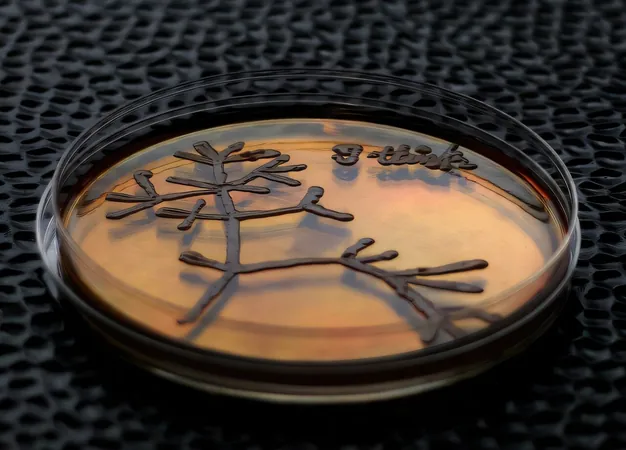
Unveiling Yeast Secrets: How Species Adapt to Rising Temperatures
2025-05-21
Author: John Tan
The Great Climate Adaptation Challenge
As climate change accelerates, one pressing question emerges: how do organisms adapt to our warming world? A groundbreaking study sheds light on this intricate dance of genetic diversity and temperature tolerance.
Insights from Yeast: A Unique Study
Published in the esteemed Proceedings of the National Academy of Sciences, researchers from Stockholm University tapped into the world of yeast (Saccharomyces spp.) to explore evolutionary potential in real-time. By simulating a warming planet, they tracked how yeast populations adapted over more than 600 generations.
No One-Size-Fits-All Solution
The findings are fascinating: adaptive responses vary from species to species. The team investigated eight diverse yeast species, including our familiar baker's yeast, under rising temperatures from 25°C to 40°C. This innovative approach revealed that each species employs its own unique strategies for coping with heat.
Some species, already equipped for warmth, didn’t improve their thermal performance but instead broadened their temperature range. Conversely, colder-adapted yeasts managed to endure higher temperatures, but this came with a price—reduced overall fitness. "This indicates that there isn’t a single pathway to adaptation, and a species' evolutionary history plays a crucial role in its response to climate stress," explains Jennifer Molinet, the study's lead author.
Why This Matters for the Future
This groundbreaking study offers critical insights into how various organisms may withstand the long-term effects of global warming. The researchers emphasize the need to examine not just individual species, but the genetic diversity both within and among them.
"Understanding how microorganisms like yeasts and bacteria adapt to extreme conditions could be pivotal in predicting future changes in ecosystems," says Rike Stelkens, an associate professor at Stockholm University. Her team's research raises intriguing questions about the genetic mechanisms behind these adaptive traits.
The Road Ahead
As temperatures continue to rise, our evolutionary history may determine which species survive and thrive. Keeping a close eye on genetic diversity could be the key to forecasting our planet's biological future in a warming world.


 Brasil (PT)
Brasil (PT)
 Canada (EN)
Canada (EN)
 Chile (ES)
Chile (ES)
 Česko (CS)
Česko (CS)
 대한민국 (KO)
대한민국 (KO)
 España (ES)
España (ES)
 France (FR)
France (FR)
 Hong Kong (EN)
Hong Kong (EN)
 Italia (IT)
Italia (IT)
 日本 (JA)
日本 (JA)
 Magyarország (HU)
Magyarország (HU)
 Norge (NO)
Norge (NO)
 Polska (PL)
Polska (PL)
 Schweiz (DE)
Schweiz (DE)
 Singapore (EN)
Singapore (EN)
 Sverige (SV)
Sverige (SV)
 Suomi (FI)
Suomi (FI)
 Türkiye (TR)
Türkiye (TR)
 الإمارات العربية المتحدة (AR)
الإمارات العربية المتحدة (AR)